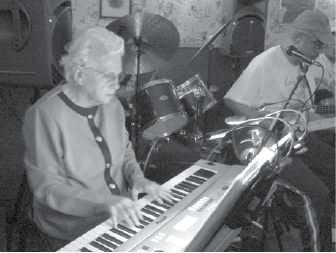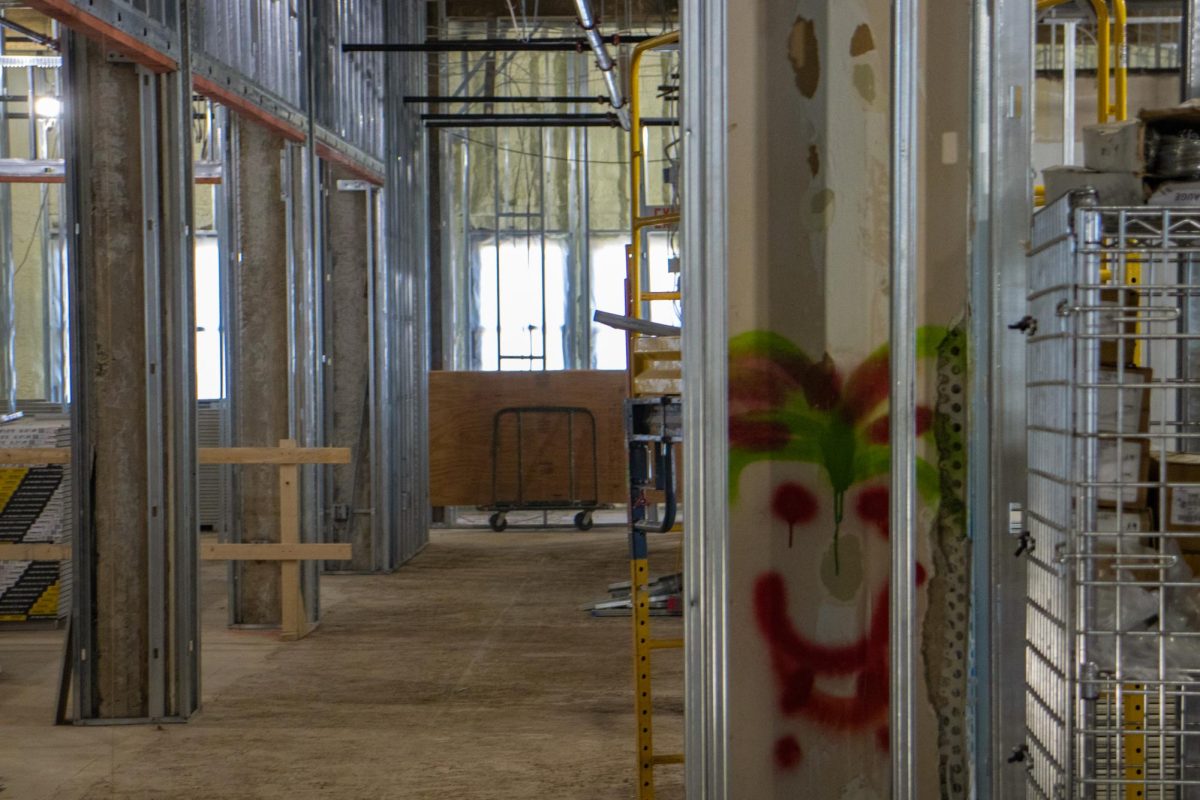Music Unifies A Gentrified Community: Granny's Ball of Odds

April 25, 2016
Since 2013, the Showtime Lounge has become a popular fixture in the Bloomingdale neighborhood of the District of Columbia. With its warm atmosphere, cheap drinks and friendly staff, it’s easy to see why. But it’s the Sunday night show with Granny’s Ball of Odds that has made Showtime a local hot spot.
“If you move into Bloomingdale, you’ll find out about Granny and the boys pretty quickly,” sad Paul Vivari, the owner of Showtime. “A lot of neighbors come every week to see them.”
Granny’s Ball of Odds plays a free show every Sunday starting at 7:30 p.m. The funk fusion band is composed of Richard Lynch on drums and vocals, Tony Harrod on guitar, Roberto Santos on bass and Alice “Granny” Donahue on keyboard.
Together, the four of them cut quite the figure, but it is Donahue who receives the most double takes. As an 82-year-old white woman, she stands apart from her black male band members. Some people even think it’s a gimmick, staring at her fingers to make sure she’s actually playing.
“It must really puzzle them that a person my age would be willing to do it,” Donahue said. “They think once you’re in your 80s, you just sit around and sip tea.”
But Granny is no joke. A classically trained pianist, she met Lynch 19 years ago when he recruited her as the band’s manager. When the then-keyboard player could no longer play with a gig right around the corner, Donahue stepped in, playing funk music for the first time in her musical career. Two decades later, she hasn’t stopped.
“Alice might be 82, but the music is really stopping her from aging,” Lynch said.
“Good!” Donahue chimed in, laughing.
In comparison, Santos and Harrod are relatively new to the scene. Santos joined six years ago after the band’s former bassist passed away, and Harrod joined less than a year ago after the last guitarist suffered from a stroke. The band, however, interacts as if they’ve been friends for life, joking around and always laughing.
“It’s been real playing with Alice and Roberto and Tony,” Lynch said. “And I thank God for that.”
The group just released a song, “Mad to the End Zone,” which they hope will pique the interest of the National Football League. They are currently working on their eighth studio album, titled “Songs for Celebration (featuring the Cat Song).” A fan favorite, “The Cat Song” is about the passing of Lynch’s cat, Bobby. Despite the sad origin, it still has a positive message—to celebrate life. All the music they write, Lynch said, spreads a positive message and avoids any negativity.
“There are enough problems in the world, and I don’t want to contribute,” Lynch said.
He’s seen some of these problems with his own eyes right outside his window. A longtime resident, Lynch has lived in the apartment above the bar since 1997 and has watched the neighborhood change quite a bit. For Lynch, this change has been positive—for example, the barbershop that occupied the space before Showtime brought in a rowdier crowd.
Other people don’t view the gentrification of Bloomingdale as positively. Kelly Green, a resident of the District for the past 15 years and a Showtime regular, has also seen the city change drastically. Although aware of her own whiteness, Green said she felt gentrification was happening “too fast, too soon.”
“Everyone wants to be safe, but when you’re blowing everyone out of this city, it’s not fun anymore,” she said.
Although Showtime could be viewed as a part of this gentrification, it brings in a crowd from all walks of life.
“It’s a nice little anchor here that can connect everyone living here,” Robert Jacobs, a neighborhood resident, said of both the bar and the Sunday night show.
Green and other regulars expressed similar sentiments.
“It’s one place to go where it’s something natural,” Green said.
Like Showtime, Granny’s Ball of Odds connects the people of the neighborhood and the band hopes that their music inspires those who listen to it. They believe music, if positive and not degrading, can change the world.
“Give people real things,” Lynch said. “Give them realness, so they can grow. The music keeps us grounded.”


